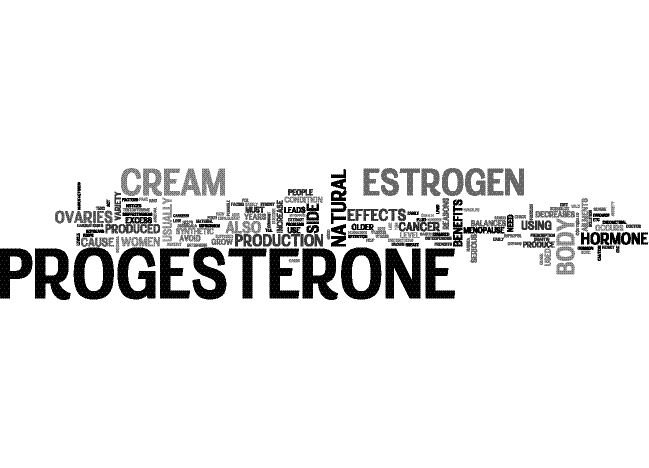Progesterone is a sex hormone your body produces when you ovulate. It is the first hormone level to fall as you enter perimenopause since ovulation becomes more and more sporadic. Because of this, estrogen runs the show all month, creating perimenopause symptoms like breast tenderness, heavy periods, insomnia, fatigue, mood swings, and anxiety.
Typically, doctors prescribe progesterone to maintain pregnancy or protect against uterine cancer when the patient takes supplemental estrogen for hormone replacement. At least, that’s how most conventional physicians file it in their mental database.
But there’s more to it than that. You may not realize that progesterone has benefits FAR beyond uterine protection and pregnancy maintenance. I get loads of progesterone questions because there is so much confusion floating around.
Many people widely misunderstand progesterone, so here’s an A-to-Z list about this hormone’s power.
A: Progesterone supplementation helps anxiety tremendously (unless cortisol is low). It’s a calming hormone that keeps those racing thoughts and worries at bay.
B: Clinical studies have shown progesterone to have a protective effect against breast cancer.
C: Progesterone can convert into cortisol if your body needs more, so some women may feel even more agitated and wired after starting it.
D: It comes in several dosage forms, including capsules, creams, troches, and oil. Cream and oil are available over the counter, while capsules and troches require a prescription.
E: It increases energy by stimulating the thyroid and boosting metabolism.
F: Progesterone is your “feel-good” hormone. When it drops, so does your mood and energy.
G: Natural progesterone can benefit the gut’s healing process. It has anti-inflammatory and anti-stress properties and can work as a natural relaxant in the GI tract.
H: Many doctors still believe that progesterone isn’t necessary after a hysterectomy. That’s old-school thinking. Progesterone isn’t just about uterine protection; it’s good for a host of other organ systems (as you can see from this list).
I: IUDs don’t contain PROGESTERONE. They contain synthetic PROGESTIN. These products (Mirena and Skylar) do not provide the positive benefits of progesterone and are associated with a small increase in breast cancer risk.
J: Studies have shown that progesterone replacement has significantly improved pain and other symptoms in patients with bone and joint conditions.
K: Progesterone keeps estrogen under control. Estrogen stimulates growth, and progesterone keeps that growth from getting out of control. When ovulation is irregular, estrogen runs the show, which results in symptoms of overload (breast tenderness, heavy periods, etc.).
L: It lightens bleeding and can stop flooding periods.
M: Estrogen dominance, which is so common during perimenopause, can trigger a migraine due to estrogen’s excitatory nature. Often, progesterone cream is all you need to relieve premenstrual or menopausal migraines.
N: Nerve health. Progesterone improves the integrity and function of cell membranes. In the brain, progesterone receptors help protect nerve tissue.
O: You produce progesterone when you ovulate. No ovulation = very low progesterone levels and increased symptoms of estrogen dominance.
P: PROGESTIN is not progesterone. It is a fake, synthetic progesterone. It does not have the positive benefits of progesterone. It WILL slow down heavy bleeding, but it will not do all the other awesome things on this list!
Q: Because progesterone gets into the brain, it helps quiet anxiety.
R: Low progesterone can cause a rapid heartbeat. Have any heart rhythm abnormalities checked out to make sure it’s not something serious, but supplementing progesterone may curb palpitations.
S: Progesterone has few side effects and is very safe. The most common side effect is drowsiness and, occasionally, depression.
T: Blood spot testing is the best way to test progesterone therapy. It will not appear accurately in blood tests, urine, or saliva.
U: Uterine protection. Progesterone can counteract the effects of estrogen therapy in women who still have a uterus. This approach decreases the risk of uterine cancer.
V: Vaginal dosing of progesterone is another alternative to oral or topical forms. Your body absorbs it very well using this route.
W: Because progesterone raises body temperature slightly, it can be helpful for weight loss.
X: Xenoestrogens. These are fake estrogens found in the environment (think plastics and pesticides). Progesterone can help counteract the effects of these compounds.
Y: Yams (as in wild). Diosgenin is a substance found in wild yams and is the starting compound for USP progesterone. The body cannot convert it to progesterone, so it’s done in a lab. The resulting hormone is bioidentical, meaning it has the same chemical structure as progesterone from the ovaries.
Z: ZZZs! Insomnia is a common sign of low progesterone. Supplementing with oral progesterone capsules is very helpful for many women who struggle with sleeplessness
Dr. Anna Garrett is a menopause expert and Doctor of Pharmacy. She helps women who are struggling with symptoms of perimenopause and menopause find natural hormone balancing solutions so they can rock their mojo through midlife and beyond. Dr. Anna is the author of Perimenopause: The Savvy Sister’s Guide to Hormone Harmony. Order your copy at www.perimenopausebook.com.
Also, she offers a membership group, Hormone Harmony with Dr. Anna Garrett, which provides women in midlife with affordable expert guidance and community support.
Dr. Anna is available for 1-1 consultations. Find out more at www.drannagarrett.com/lets-





